Malt vinegar is lemony, nutty, and has caramel flavors that make it an excellent addition to brines, marinades, salad dresses, pickles, and dishes. Its unique acidic taste with a hint of sweetness sets it aside from the regular vinegar you can find in the market.

The problem is you can never have an unlimited source of malt vinegar. Once your bottle runs out, it’s essential to know what alternatives you can use instead. Moreover, malt vinegar comes from grains and contains gluten. Rice wine vinegar resembles the flavors of malt vinegar, but you can opt for apple cider vinegar if you have gluten intolerance.
Other options include apple cider vinegar, white vinegar, balsamic vinegar, red wine vinegar, rice vinegar, Worcestershire sauce, sherry vinegar, distilled vinegar, black vinegar, cane vinegar, lemon juice, and lime juice. Although all possess acidity, they differ in taste and texture. This article will discuss each of these to help you decide on the best substitute to use.
Table of Contents
Best Malt Vinegar Substitutes
1) Rice Wine Vinegar or Rice Vinegar

Both malt vinegar and rice wine vinegar come from grains, making them sweeter despite their acidic nature. However, rice wine vinegar contains around 18-25% alcohol, unlike malt vinegar.
Rice wine vinegar and rice vinegar are the same product. Its high alcohol content makes it an ideal substitute for meat and fish dishes as it deodorizes and tenderizes them. Brines, marinades, and sauces for dishes become easy when using this as an alternative.
When used as a substitute, you can add the same amount of malt vinegar instructed in the recipe you’re following. However, this entirely depends on your liking, as rice wine vinegar’s flavors are more robust due to the presence of alcohol. The taste might be a bit powerful when added to salad dressings, and smaller quantities might be required.
Despite its great taste, like malt vinegar, rice wine vinegar contains gluten and is not the perfect substitute for those with gluten intolerance.
2) Apple Cider Vinegar
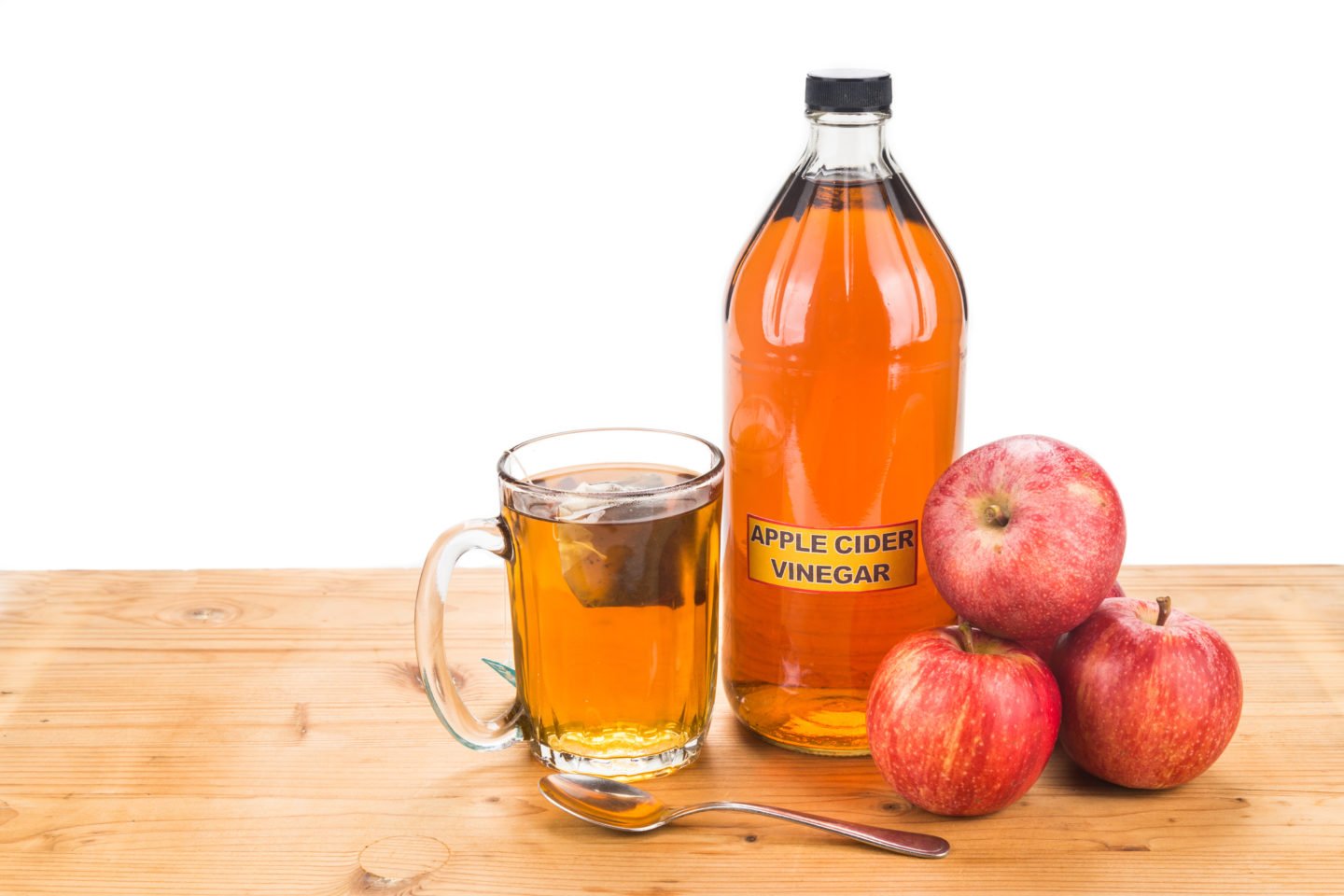
If you have gluten intolerance and need a malt vinegar substitute, apple cider vinegar is a great option. Although malt vinegar and apple cider vinegar contain about 6-8% acetic acid, the latter is less sweet and presents a tangy, sour taste, making it excellent for dips, salad dressings, and pickling vegetables.
Aside from its flavors, consumers prefer apple cider vinegar for its health benefits. It is known as an effective agent for weight loss and reducing appetite. It is also proven to lower blood cholesterol and sugar levels and is rich in antioxidants. Moreover, apple cider vinegar is more affordable and is available even in local grocery stores.
When used as an alternative, the same amount should be added when following a recipe but can be adjusted as its sour taste can be overpowering.
3) Cane Vinegar
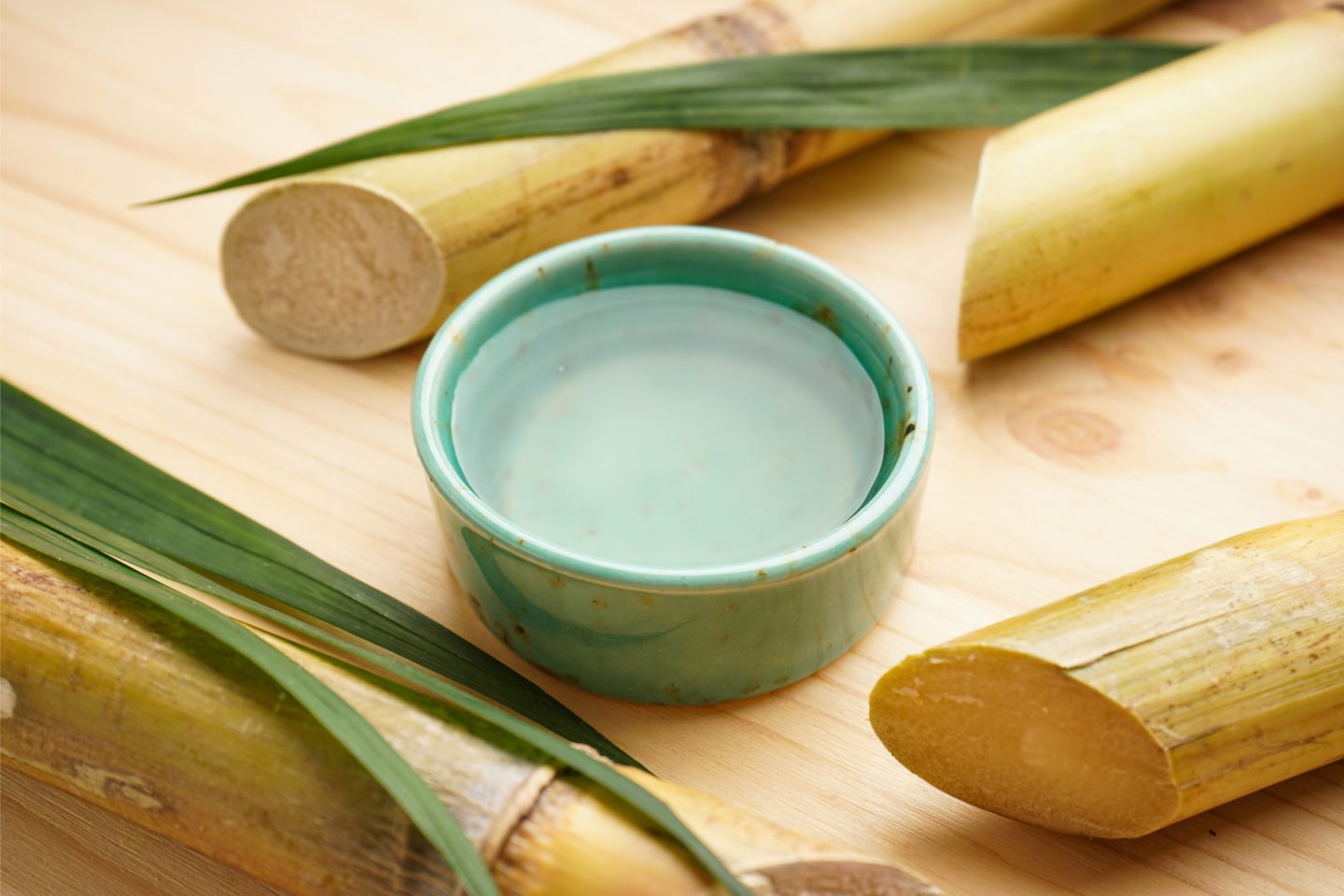
Cane vinegar is one of the affordable substitutes that resembles the taste and appearance of malt vinegar the most. Although made from a different source, sugar cane vinegar provides a fresh taste that resembles malt vinegar. Cane vinegar might lack the sweetness you can taste from malt vinegar, but it certainly goes well with all kinds of dishes without overpowering other ingredients.
Due to its mild taste, you can add the same amount of cane vinegar as indicated in your recipe. Cane vinegar is an excellent addition to marinades as it takes away the odor while giving a fresh sour taste to enhance meat flavor. Moreover, it appears just like malt vinegar, so you can add it to your dressings without any worry.
4) Spirit Vinegar or White Vinegar
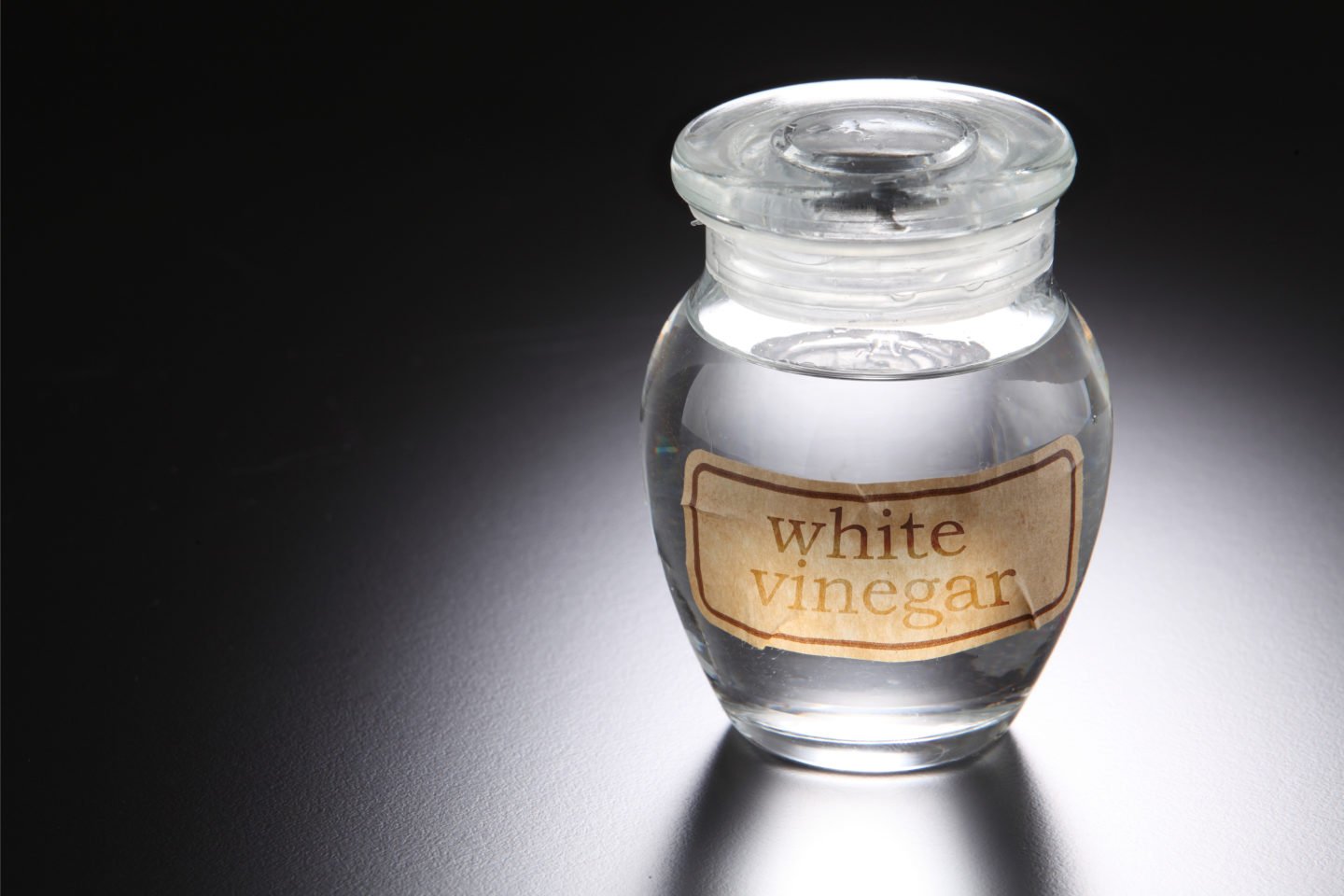
Spirit vinegar is a more pungent vinegar containing 5-24% acetic acid and underwent a double fermentation process. It is sometimes produced from sugar cane but mostly from synthetic acetic acid, which explains its robust sour, tangy taste. Spirit vinegar and white vinegar are similar, but spirit vinegar contains more acetic acid.
When used as a substitute, we recommend using only ¼ tablespoon of spirit vinegar for every tablespoon of malt vinegar indicated in the recipe. Spirit vinegar is excellent for marinades, brines, and pickles. However, we don’t recommend it for salads due to its robust and acidic taste. The acidity can be dangerous to the mouth and teeth.
5) Balsamic Vinegar
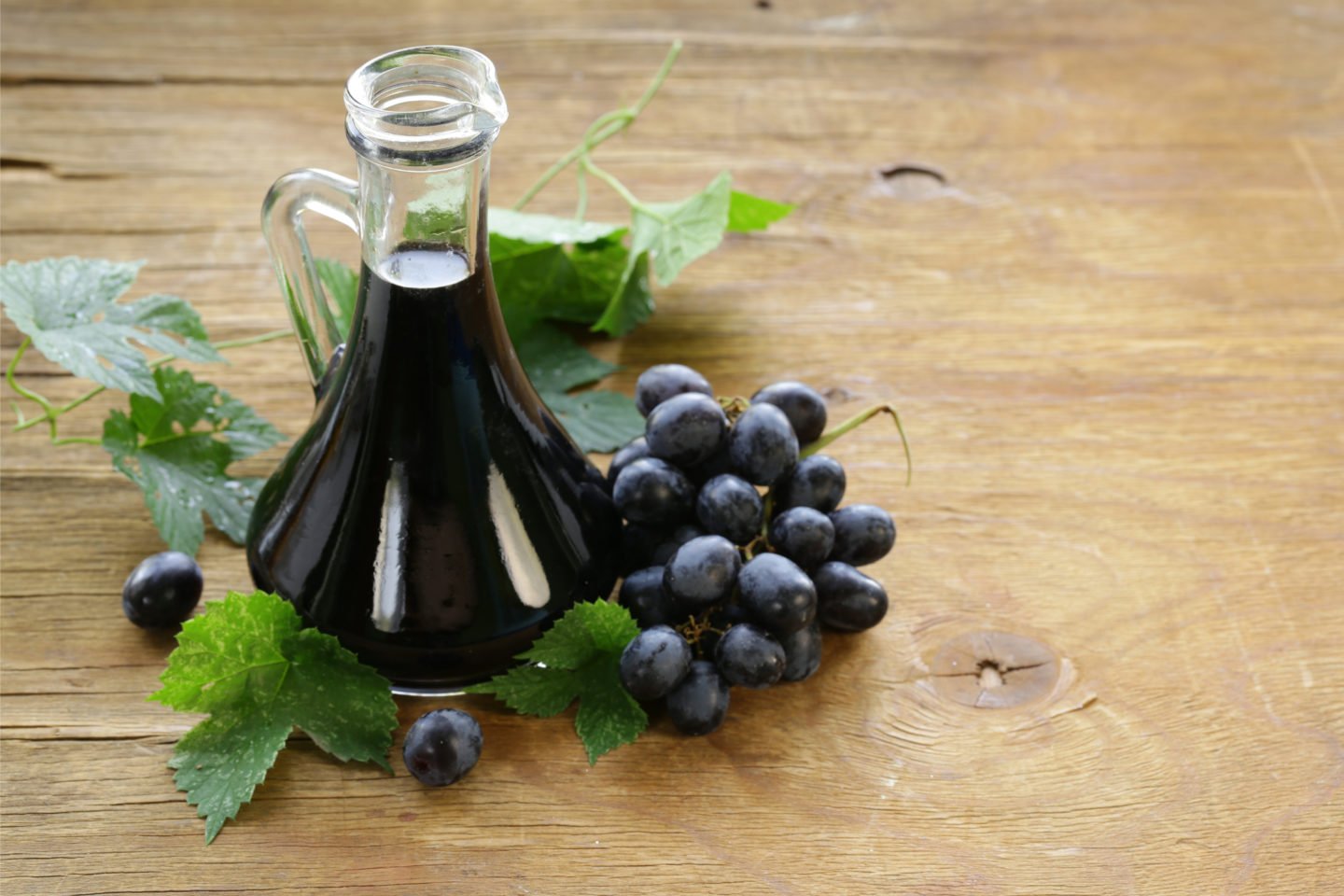
When it comes to the balance of sweet and sour, balsamic vinegar wins the game. Aged for more than 12 years, this liquid gold from grapes provides not only a unique taste similar to malt vinegar but also an umami flavor, making it a perfect addition to marinades, sauces, and brines. Unlike malt vinegar’s sweetness from grain, balsamic vinegar comes from aged grapes.
When using this as an alternative, you might expect an almost chocolatey-like sweeter aftertaste due to its 15% alcohol content. The glucose in this alternative is high enough to cause a sugar spike in diabetic people, so you might want to take note of that.
Although balsamic vinegar resembles malt vinegar, it can be pricey and rare. Nevertheless, this is an excellent, flavorful alternative that grants more than the usual vinegar offers.
6) Distilled Vinegar

If you’re after the strong acid taste, distilled vinegar is the best alternative for malt vinegar. As it contains 5-10% acetic acid, this is the most “vinegary” vinegar in the market.
Due to the high acid content, distilled vinegar is an excellent addition to marinades, along with rice wine vinegar, balsamic vinegar, and apple cider vinegar. However, the sour taste can be overpowering when used for salad dressings.
When following a recipe, we suggest you use only half of the indicated amount of malt vinegar and add distilled vinegar as you gauge the flavor. As the name implies, distilled vinegar is clear and lacks the sweetness that you can taste in malt vinegar. However, in a pinch, this is a quick alternative that is cost-efficient and highly available.
7) Red Wine Vinegar

Red wine vinegar has a robust and sharp flavor, making it a perfect substitute for malt vinegar, especially for marinades, brines, and sauces. Since it comes from grapes, you can expect a sweeter taste, but with a tangy finish, suitable for salad dressings. Moreover, red wine vinegar comes in a dark red appearance that gives a rosy sheen to your dishes.
When used as a substitute for marinades and brines, you can follow the same 1:1 malt vinegar and red wine vinegar ratio as they are both sour with a sweet taste. However, red wine vinegar contains 6-7% acetic acid, resulting in a solid tangy flavor.
When used for salad dressings and sauces, you can start replacing one tablespoon of malt vinegar with half a tablespoon of red wine vinegar and add more as needed.
8) Worcestershire Sauce
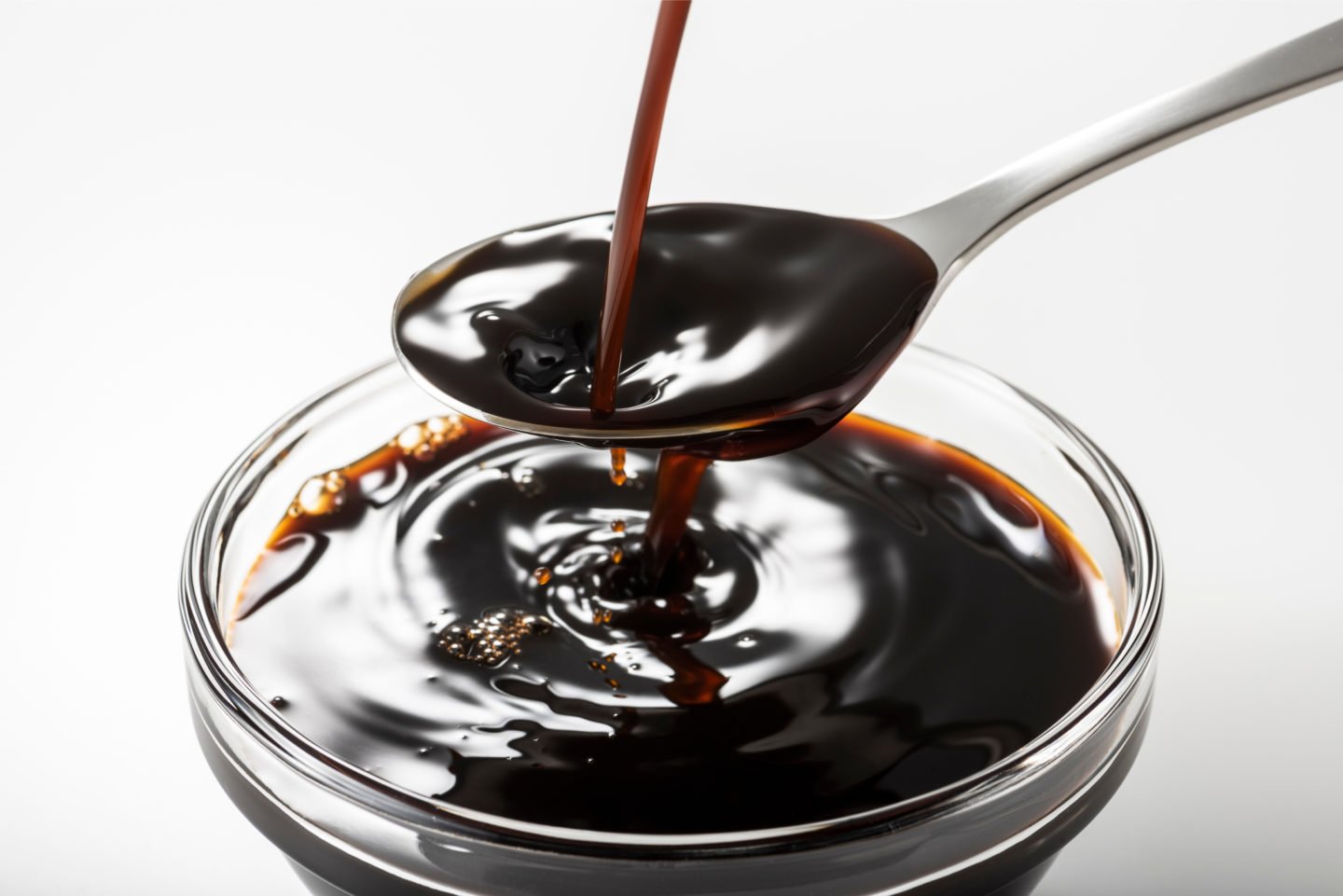
Like Balsamic vinegar, Worcestershire sauce is a replacement that offers more than just a sweet and sour taste. In this list, Worcestershire sauce is the only one that isn’t of fruit or grain origin but rather a ready-made sauce that you can use on its own.
A mixture of soy sauce, anchovies, malt vinegar, salt, sugar, herb vinegar, and spices, Worcestershire sauce offers an umami-rich flavor that’s perfect for marinades and sauces.
Unlike other substitutes in this list, we recommend using Worcestershire sauce depending on your liking and the dish being prepared. Since it offers a more complex taste, adding a small amount is recommended, then adding more as required, especially when doing salads.
9) Sherry Vinegar
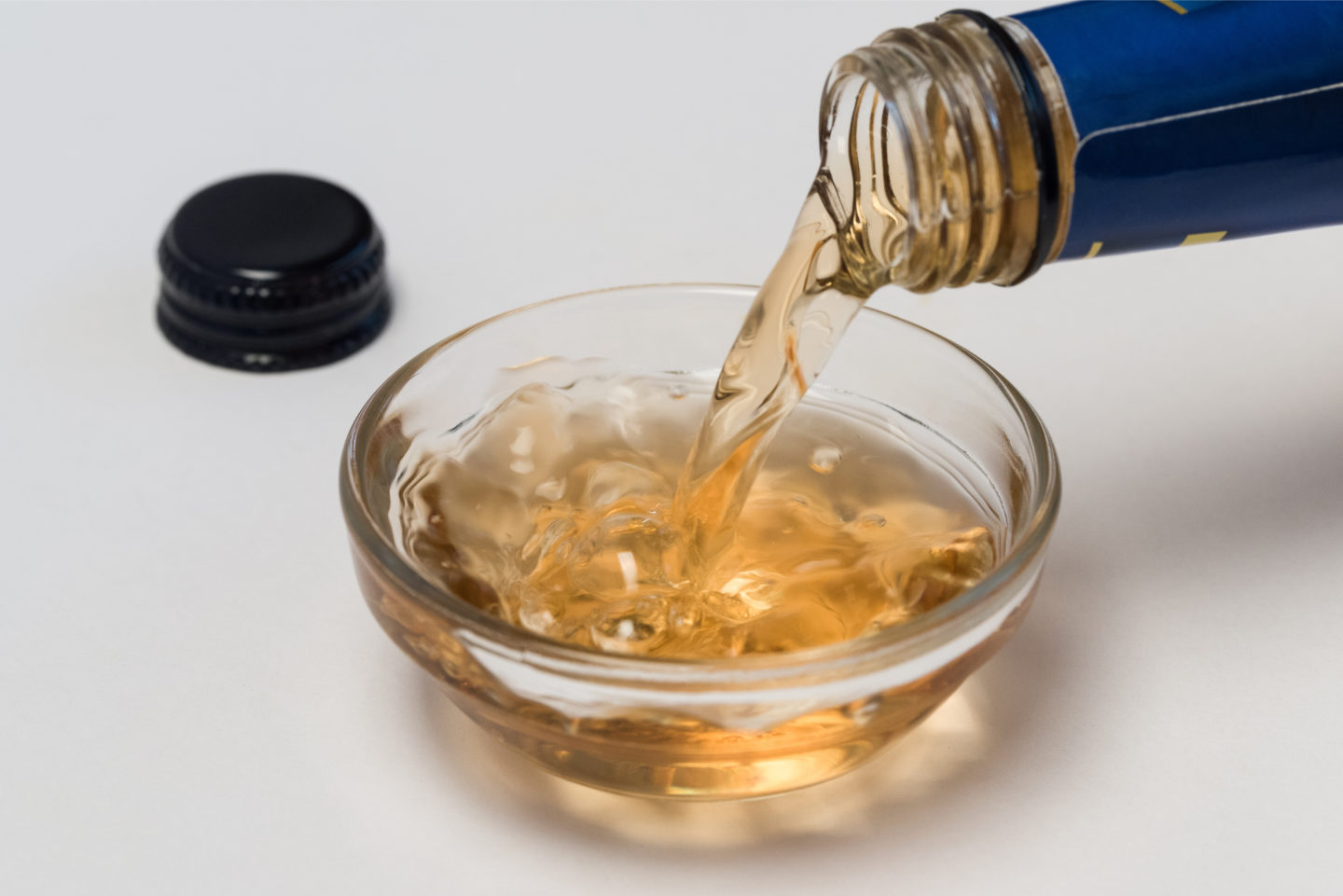
If you’re looking for a more subtle substitute for malt vinegar, sherry vinegar is the one to use. Its flavors are rich and nutty, with a hint of sweetness that resembles malt vinegar. Although it contains around 7-8% acetic acid, it is blended and aged, producing a less sour taste when compared with white vinegar or apple cider vinegar. For that reason, we recommend a 1:1 malt vinegar to sherry vinegar ratio.
Because of its rich taste, sherry vinegar is excellent for marinades, brines, and salad dressings and sauces. Sherry vinegar appears as a light to dark brown that resembles malt vinegar. There might be a difference to the taste as sherry vinegar is a fruit vinegar, but it is undoubtedly a great alternative when in a pinch.
10) Black Vinegar
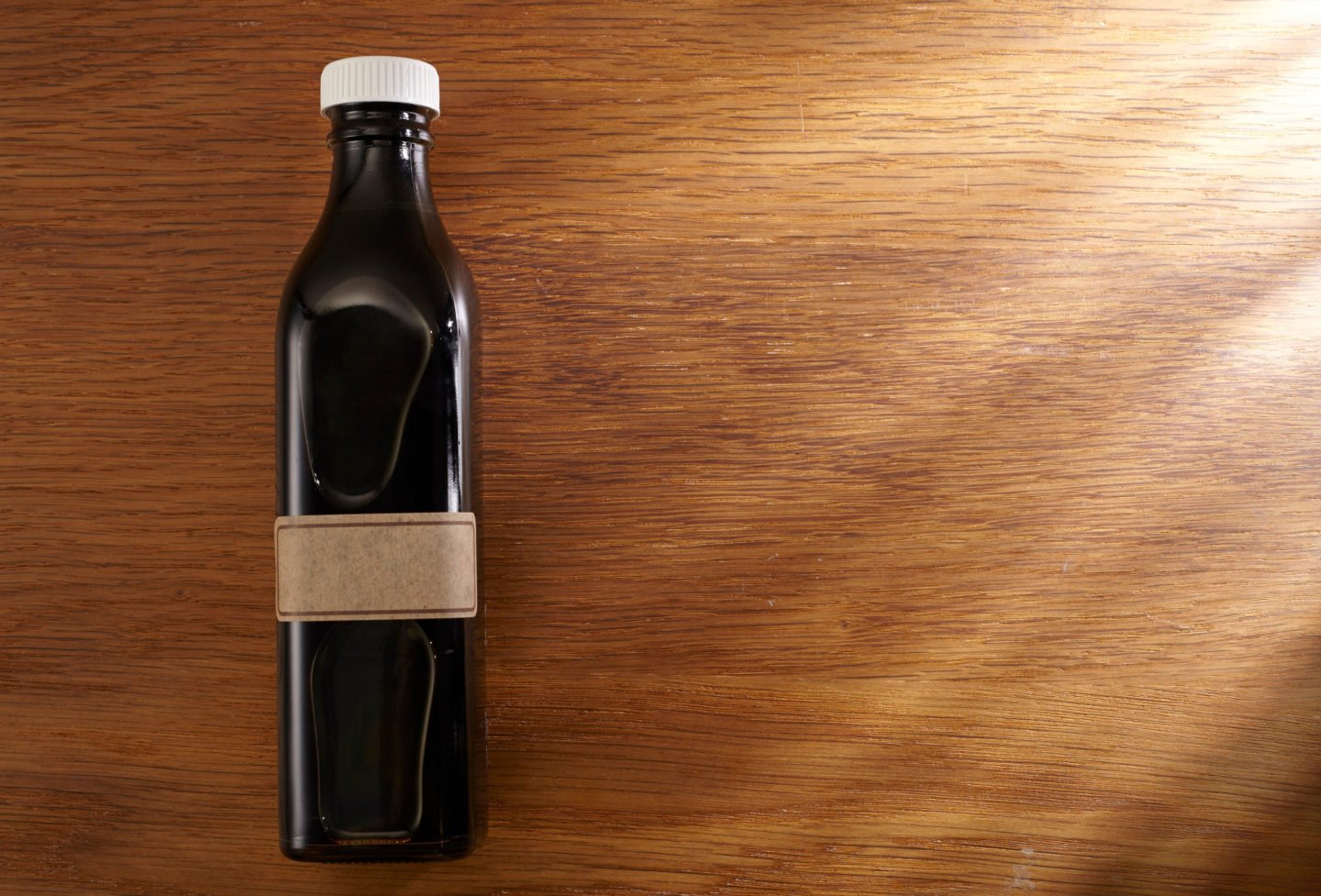
Another excellent replacement for malt vinegar is black vinegar. It is fermented and aged glutinous rice, resulting in a dark, aromatic liquid that offers more than a sour taste. Since it is made from rice, it provides an umami-rich flavor with a sweet aftertaste. Black vinegar is an excellent condiment for marinades, sauces, and dressings.
We recommend using one tablespoon of black vinegar for marinades and sauces for every tablespoon of malt vinegar indicated in the recipe you’re following. However, for salad dressings, you can start by adding half a tablespoon of black vinegar and adding more when desired.
As the name implies, black vinegar is a dark colored-liquid that can change the appearance of sauces and dressings.
11) Lemon Juice
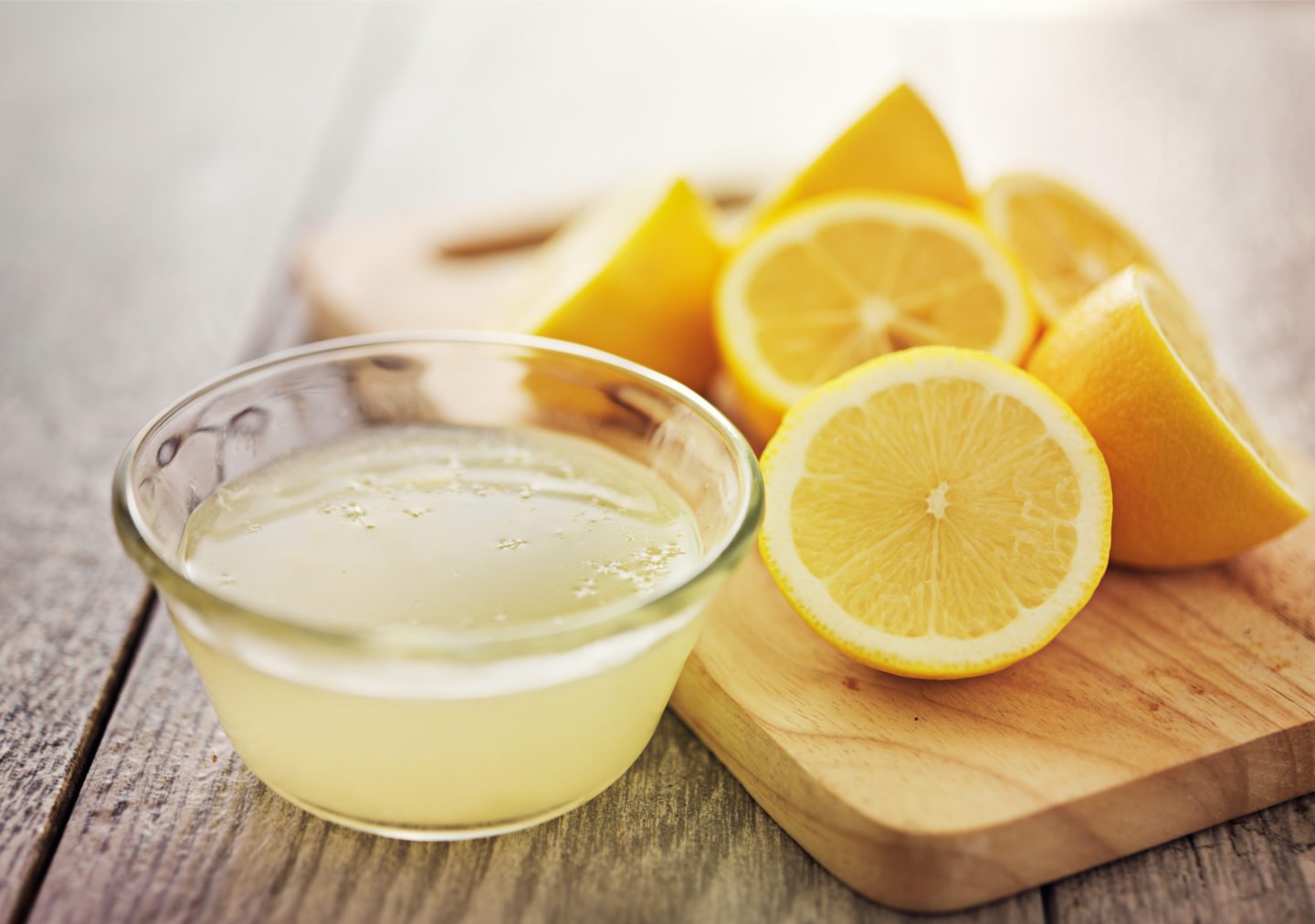
Almost everyone has lemons in their kitchens, and luckily, you can squeeze one and add its juice to your favorite dishes in the absence of malt vinegar. Lemon juice may have a stronger acidic taste and a tangy finish, but it is an excellent counterpart when dealing with salads and marinades. It also gives that sweet finish despite the sour taste.
When using lemon juice as a substitute in marinades, we recommend using one tablespoon of lemon juice for every tablespoon of malt vinegar indicated in the recipe. For salads, start by adding half a tablespoon for every tablespoon and add more when needed since lemon juice provides a citrusy scent and taste and can interfere with other ingredients.
12) Lime Juice
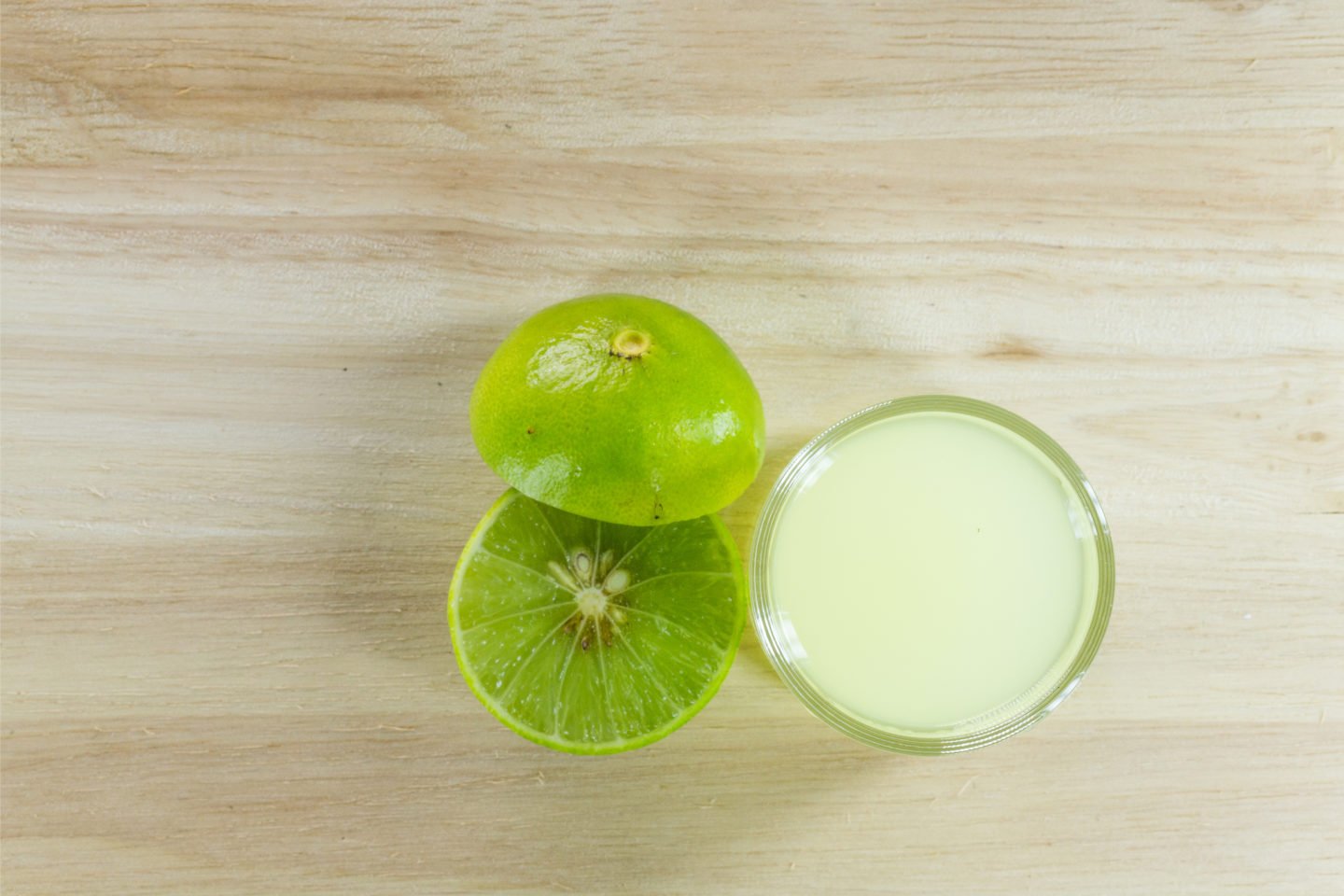
Last on the list is lime juice. Like lemon juice, it provides a citrusy scent and taste, but lime juice is more acidic than lemon juice and does not provide that sweet aftertaste. However, when you’re in a pinch and already have limes in your kitchen, you can use the liquid to replace malt vinegar.
Since lime juice can be overpowering, we recommend using half a tablespoon of lime juice for every tablespoon of malt vinegar required. Lime juice works best with salad dressings and sauces but can also be used for marinades.
Summary Table
| Summary | Notes |
|---|---|
| Rice Wine Vinegar or Rice Vinegar | Best substitute as it tastes and appears like malt vinegar and is great for meats and seafood. |
| Apple Cider Vinegar | Best non-gluten substitute. Affordable, highly available, and great for salad dressings and pickles. |
| Cane Vinegar | Light and refreshing, it resembles malt vinegar's color and taste. |
| Spirit Vinegar or White Vinegar | Strong acid taste, inexpensive, and highly available. Perfect for pickling. |
| Balsamic Vinegar | Provides rich, umami flavor to sauces and marinades and has s well-balanced sweet and sour taste. |
| Distilled Vinegar | Strong, acidic taste but milder than spirit vinegar. Great for pickling. |
| Red Wine Vinegar | It offers an excellent sweet and sour taste that’s sharp and tangy but great for salads. |
| Worcestershire Sauce | An all-in-one sauce. It gives umami flavor and is great for marinades and sauces. |
| Sherry Vinegar | A fruit vinegar aged to produce a perfectly blended sweet, nutty finish. |
| Black Vinegar | Excellent for marinades. The dark color may affect salad dressings, but flavors are a win. |
| Lemon Juice | A safer, inexpensive, and readily available option. Provides citrusy acidic taste. |
| Lime Juice | Citrusy without the hint of sweetness. The acidic taste might be overpowering. |
Related Questions
Malt vinegar is a product of malting barley, which produces a sour yet sweet liquid, while regular vinegar or white vinegar is purified, consisting only of acid and water.
White vinegar has up to 24% acid and is dangerous to health when consumed daily. It can irritate the throat, skin, and digestive organs. On the other hand, malt vinegar has a lot of benefits to the digestive system, hair, and skin. Since it only contains 4-5% acetic acid, daily use is considered safe.
In a pinch, yes. The main difference between apple cider vinegar and malt vinegar is their origin. Apple cider vinegar is fruit vinegar, while malt vinegar is grain vinegar.
Apples are naturally acidic (with a pH of 4) and produce a very sour vinegar once fermented. On the other hand, fermentation of barley results in a milder taste with a hint of sweetness. While apple cider vinegar tastes different from malt vinegar, it is inexpensive and is highly available, making it a good alternative.
Since malt vinegar is made from grains, the best substitutes are grain vinegar. Rice wine vinegar, rice vinegar, and black vinegar are the best alternatives. Worcestershire sauce is a ready-made sauce with malt vinegar and can also be used as a substitute. Another great alternative is cane vinegar. Like malt vinegar, it provides a refreshing taste to the dishes and closely resembles the color, too.
Malt vinegar doesn't spoil. However, the manufacturers place a "best by" or "best consumed before" date on the packaging. This is because the integrity of the vinegar might change.
Once opened, the appearance of malt vinegar starts to change. Malt vinegar appears clear brown, but it may become darker as oxidation occurs. You might also notice the consistency changing. From clear, it becomes opaque. To prevent these from happening, store your malt vinegar in a cool, dry place while keeping it sealed after opening.
If a recipe includes the addition of vinegar and you don't have any or simply don't like vinegar at all, you can use lemon juice or lime juice as a substitute. Lemons and limes have a strong acidic taste. However, note that they produce a citrusy scent and flavor that can affect the overall taste of the dish you're making. Nonetheless, they are great for marinades, sauces, and salad dressings.

Leave a Reply